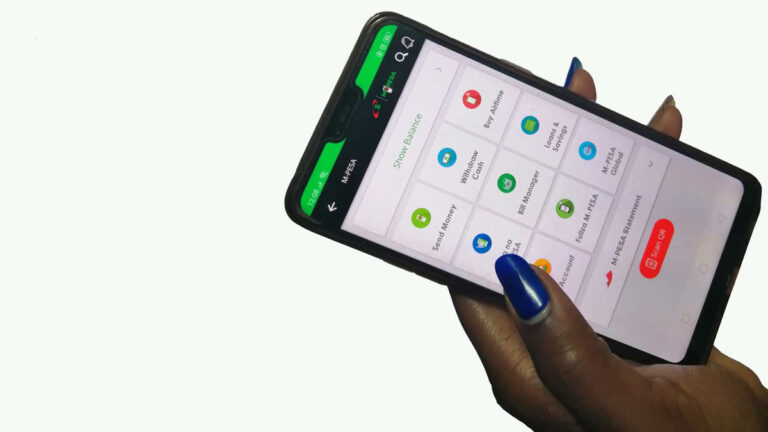In recent times Kenya has seen a boom in mobile financial services and Fuliza by Safaricom is one of them that has changed the way we manage our money. Among these services Fuliza stands out as a powerful tool that allows you to get instant mobile overdraft and for many Kenyans it’s a lifesaver when they run out of cash in their M-Pesa accounts. In this post we’ll look into what is Fuliza, how to subscribe to Fuliza and other things you need to know about this service.
What is Fuliza?
Fuliza is a mobile overdraft service by Safaricom in partnership with Commercial Bank of Africa (CBA) and Cooperative Bank of Kenya. It allows M-Pesa users to complete their transactions even when they don’t have enough cash in their M-Pesa wallet. This service is for individuals and businesses and is a safety net in case you don’t have enough cash to send money, pay bills, buy airtime or do other M-Pesa services.
With Fuliza, Safaricom customers can access credit up to a certain limit based on their usage pattern and use it to never miss a transaction. Unlike traditional loans, Fuliza overdraft is instant and no formal application is required.
How Fuliza Works
Fuliza works by giving you a temporary overdraft on your M-Pesa account. When your M-Pesa balance is insufficient to complete a transaction, Fuliza kicks in and the transaction goes through. It’s very useful when you’re low on cash and need to make an urgent payment, buy airtime or send money to someone.
The service charges a daily fee based on the amount you borrowed. You can repay the overdraft as soon as you receive money into your M-Pesa account and the amount will be deducted along with the fees.
How to Subscribe to Fuliza
Subscribing to Fuliza is easy and no paperwork or credit check required. To activate Fuliza follow these steps:
- Ensure Your M-Pesa Account Is Active: Fuliza is only available to registered M-Pesa users. If you don’t have an active M-Pesa account you need to register with Safaricom.
- Dial the USSD Code:
- Open your phone’s dialer and dial *234# to access the Fuliza subscription menu.
- You will see a menu with Fuliza options.
- Select Fuliza M-Pesa:
- Follow the prompts and select subscribe to Fuliza. If you are eligible the system will confirm your subscription.
- Accept the Terms and Conditions:
- You will be asked to review and accept the terms and conditions before you subscribe to Fuliza. Read them carefully before you proceed.
- Check Your Fuliza Limit:
- After you subscribe successfully you can check your Fuliza limit by dialing *234# and select Check Limit from the options. Your limit will be based on your M-Pesa usage and transaction history.
Fuliza Eligibility
Not everyone is eligible for Fuliza. Safaricom has a set of criteria to determine eligibility. These are:
- Active M-Pesa Account: Only users with an active M-Pesa account that has been in use for a while are eligible.
- Transaction History: Safaricom looks at your transaction behavior – how often you use M-Pesa, the amount you transact and your repayment habits.
- Credit Scoring: Safaricom scores you based on your M-Pesa usage patterns. If your M-Pesa account has a history of frequent use and regular repayments, you’ll qualify for a higher Fuliza limit.
- No Existing Loan Defaults: If you have defaulted on a previous loan or failed to repay an overdraft, you might not be eligible for Fuliza.
Fuliza Limits and Charges
Fuliza limit varies based on your usage history. New users start with a lower limit which increases over time as they build a good M-Pesa usage record. The limit can go up to KSh 70,000 but this varies by user.
Fuliza isn’t free. The service comes with daily interest on the borrowed amount calculated as follows:
- The fee is charged on the amount borrowed, from 0.5% to 1% of the amount borrowed depending on the repayment terms and amount.
Here’s a breakdown of the fees:
- KSh 100 to KSh 999: KSh 10 per day.
- KSh 1,000 to KSh 2,999: KSh 20 per day.
- KSh 3,000 and above: The fee varies based on the amount and other factors.
The daily fee is small but remember if you don’t repay on time the charges will accumulate and if not cleared fast enough they can add up.
How to Pay Fuliza
Paying Fuliza is easy. Once your M-Pesa account has funds, the money is deducted automatically to cover the amount you owe plus any applicable fees. You don’t have to manually repay the overdraft – Safaricom will deduct it immediately when they receive the funds.
You can also check your outstanding balance and repayment status by dialing *234# or by logging into your M-Pesa account.
How to avoid Fuliza Debt
While Fuliza is a convenient way to manage emergencies and unexpected expenses, users should be careful not to rely on it too much. Overusing Fuliza can lead to debt accumulation due to the daily interest charges. Here are some tips to avoid getting into debt:
- Monitor Your Usage: Check your M-Pesa balance regularly to avoid borrowing from Fuliza continuously.
- Repay Fast: Repay the overdraft as soon as possible to avoid paying interest for longer periods.
- Use Fuliza as a Last Resort: Use Fuliza only in emergencies. Using it for non-urgent transactions will lead to unnecessary debt.
Fuliza benefits
- Instant Credit: Fuliza is fast and convenient way to get short term credit with no paperwork or approval process.
- No Collateral Required: Unlike traditional loans, Fuliza doesn’t need you to provide any security or collateral.
- Flexi Repayment: You can repay at your own time and the repayment is seamless as the funds are deducted from your M-Pesa account.
- Convenience: You can access the service anytime and anywhere in Kenya as long as you have a Safaricom network.
Fuliza challenges
- High Fees: The daily charges can add up if you use it frequently.
- Over-reliance: Some users may become too dependent on the service and get into financial strain if they can’t pay back the borrowed amount.
Conclusion
Fuliza has been a lifeline for many Kenyans in need of emergency funds, a simple and fast way to complete M-Pesa transactions. By subscribing to Fuliza, you get a flexible credit line to cover M-Pesa balance gaps. But use it responsibly, frequent borrowing and the daily fees can get you into financial trouble. Be mindful of your usage and pay back on time to enjoy the service.









